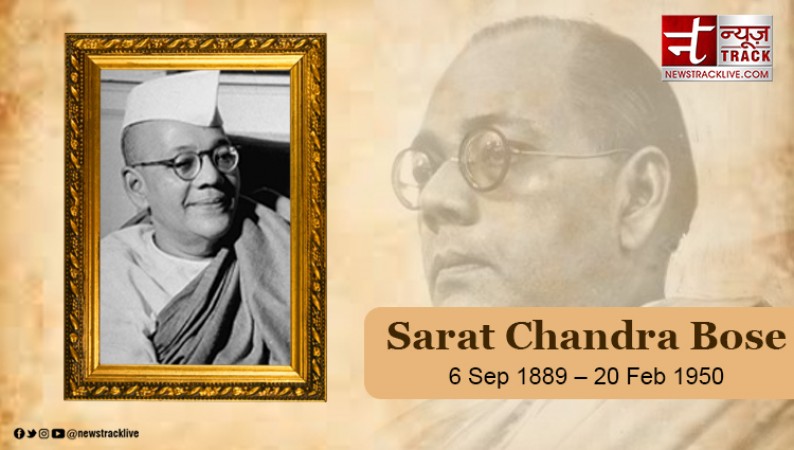
On September 6th, we commemorate the birth anniversary of Sarat Chandra Bose, a prominent figure in India's struggle for independence. Born on September 6, 1889, in Cuttack, Odisha, Sarat Chandra Bose was more than just the elder brother of Netaji Subhas Chandra Bose; he was a dedicated barrister, a passionate politician, and a tireless freedom fighter. As we honor his memory, let's delve into the remarkable life and contributions of this unsung hero.
Early Life and Family
Sarat Chandra Bose was the fourth child among the fourteen offspring of Prabhavati Devi and Janakinath Bose. His large family included two elder sisters, Pramilabala Mitra and Saralabala Dey, and an elder brother, Satish Chandra Bose. Additionally, he had four younger sisters and six younger brothers, including the renowned Subhas Chandra Bose and Dr. Sunil Chandra Bose.
Educational Pursuits
Sarat Chandra's academic journey took him to prestigious institutions. He attended the Presidency College and Scottish Church College, both affiliated with the University of Calcutta. His thirst for knowledge eventually led him to England in 1911, where he pursued a career in law and became a member of The Honorary Society of Lincoln's Inn.
Entry into Politics and Freedom Movement
Returning to India, Sarat Chandra Bose initially practiced law but felt a stronger calling towards the Indian freedom struggle. He willingly sacrificed his profession to join the ranks of the independence movement. His dedication and commitment did not go unnoticed.
In 1936, Sarat Chandra Bose assumed the role of President of the Bengal Pradesh Congress Committee. Simultaneously, he served as a member of the All India Congress Committee (AICC) from 1936 to 1947, playing an active part in shaping the destiny of a nation yearning for freedom.
Sacrifices and Imprisonment
Sarat Chandra Bose's resolve for independence led him down a path filled with sacrifices. When his brother, Subhas Chandra Bose, made a daring escape, Sarat Chandra faced arrest. This occurred just a day before he was set to join the cabinet of the Fazlul Haq government.
His journey through incarceration took him from one prison to another, first in Mercara and then Coonoor. Unfortunately, his health deteriorated significantly during this period. Despite these challenges, his spirit remained unbroken.
In 1945, after enduring four and a half years of imprisonment, Sarat Chandra Bose was finally released from jail.
Championing the Indian National Army and Quit India Movement
Sarat Chandra Bose ardently supported the formation of the Indian National Army (INA) by his younger brother, Subhash Chandra Bose. He played a pivotal role in the Quit India Movement, advocating for India's immediate independence from British colonial rule.
Support for INA Soldiers' Families
After the tragic news of Netaji's death, Sarat Chandra Bose didn't rest. He extended his support to the families of INA soldiers through the INA Defence and Relief Committee, providing assistance in their time of need.
Opposing the Partition of Bengal
Sarat Chandra Bose was an outspoken critic of the partition of Bengal, which was part of the Cabinet Mission Plan to divide the region along religious lines. Fueled by his convictions, he resigned from the AICC in protest against this divisive move.
Personal Life
In 1909, Sarat Chandra Bose married Bivabati Dey, the daughter of Subala Dey and Akhoy Kumar Dey. The couple was blessed with eight children.
Legacy and Passing
Sarat Chandra Bose's unwavering dedication to the cause of Indian independence and his remarkable contributions to the freedom movement continue to inspire generations. Sadly, he passed away on February 20, 1950, at the age of 60, but his legacy lives on as a testament to the indomitable spirit of those who fought for India's freedom.
As we commemorate Sarat Chandra Bose's birth anniversary, let us remember his sacrifices, his relentless pursuit of freedom, and his unwavering commitment to a united and independent India. His life remains a beacon of inspiration for all those who seek to uphold the values of liberty, justice, and unity.